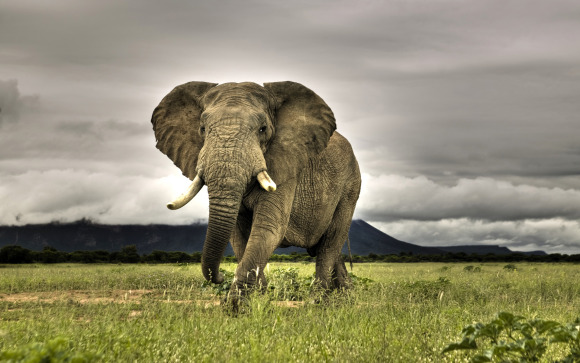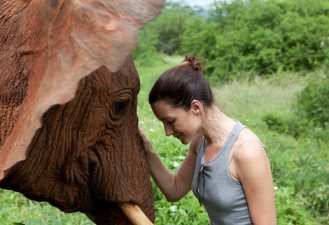In 2012, former NBA star and Chinese icon Yao Ming toured Africa to learn more about the reality of poaching and to capture footage for his upcoming documentary, The End of the Wild, airing later this year in partnership with Natural History New Zealand. This past April 16, 2013, he launched a campaign in Beijing to raise awareness about elephant and rhino poaching with the help of WildAid, Save the Elephants, African Wildlife Foundation and the Yao Ming Foundation.
The revealing statistics listed below, were compiled from a Chinese research company Horizon Key over two separate studies in the three major cities of Beijing, Shanghai and Guangzhou, highlighting common misconceptions about ivory in the Chinese population. (Shared from Africa Geographic)
- Over 50% of the nearly 1,000 participants do not think elephant poaching is common.
- One of three (33%) believes ivory is obtained from natural elephant mortality.
- Two of three (66%) are not aware that rhino horn comes from poached rhinos.In both studies, over 90 per cent of the participants agree that the Chinese government should enforce the ban on ivory trade and take stricter action to prevent the use of rhino horn. ‘Because of the demand for ivory, poaching has erupted all over Africa,’ …Over 25,000 elephants are today poached and killed annually for their ivory, reaching a level seen only before the 1989 international trade ban.
Yao Ming is intent on changing the attitudes and understanding of the Chinese population towards ivory. His last campaign against shark finning in China was a huge success. It is credited with a reduction of 50-70 percent in shark fin consumption. As he undertakes this new campaign, the challenge will be that he is not only fighting a cultural heritage of ivory carving, but he is also up against greedy consumerism. The ivory trade generates billions of dollars and is often listed with other illicit crimes such as human trafficking and the drug trade.
But Ming is confident that his people will listen to his message, and respond. As he says,
Poaching threatens livelihoods, education and development in parts of Africa due to the insecurity it brings and loss of tourism it generates…when people in China know what’s happening, they will do the right thing and say no to these products.




